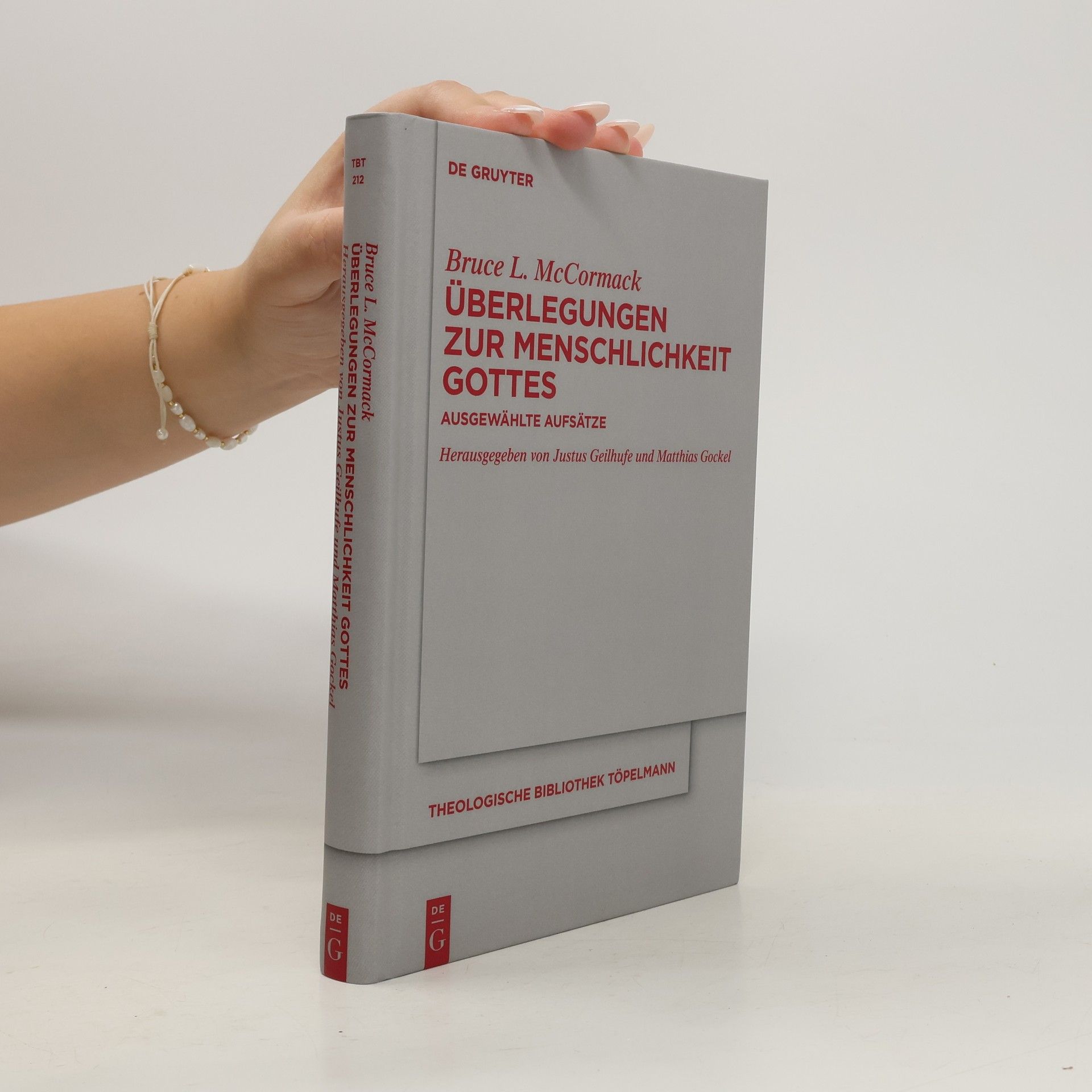Die Studien des nordamerikanischen Theologen Bruce L. McCormack zu theologiegeschichtlichen, systematischen und biblisch-theologischen Themen sind bisher nur vereinzelt übersetzt worden. Der vorliegende Band füllt diese Lücke und bietet damit deutschsprachigen Leser/-innen nun einen hervorragenden Zugang zu dessen wichtigen theologischen Neuentwürfen. Der erste Teil enthält Beiträge zur Debatte über die Erwählungslehre Barths sowie einen exklusiv für diesen Band verfassten Rückblick auf die Debatte. Der zweite Teil bietet biblisch-theologische Studien. Er diskutiert Deutungen der Theologie des Paulus in apokalyptischer Perspektive, fragt nach dem Verständnis Jesu als "Sohn Gottes" im Hebräerbrief und interpretiert Jesu "Schrei der Gottverlassenheit" (Mk 15,34). Der dritte Teil enthält theologiegeschichtliche Studien in systematischer Absicht zum Verhältnis von K. Barth und F. Schleiermacher, zur Barth-Deutung E. Jüngels und zur Revision der sogenannten Zweinaturenlehre bei K. Barth und P. Tillich. Der vierte Teil bietet systematisch-konstruktive Studien und ergänzt McCormacks 2021 erschienenen Entwurf zur Christologie. Es geht um die Rechtfertigungslehre, Soteriologie und Christologie sowie um das Leiden Gottes. Bruce L. McCormack wurde vor allem durch seine Monografie zur Entwicklung der Theologie Karl Barths bekannt, die 2006 auf Deutsch erschien.
Bruce McCormack Book order (chronological)
January 1, 1952
Bruce L. McCormack is a world-renowned scholar of Karl Barth and a frequent writer and lecturer on Reformed theology. His work delves deeply into the complexities of theological thought, offering readers profound insights into central questions of faith. McCormack's expertise in systematic theology and his ability to present intricate subjects with clarity make him a significant voice in contemporary theological discourse.


The Humility of the Eternal Son
- 328 pages
- 12 hours of reading
This book is the first thoroughly Reformed version of kenotic Christology. It has the virtue of overcoming from within the logical aporia created by the Chalcedonian Definition without abandoning that Definition.